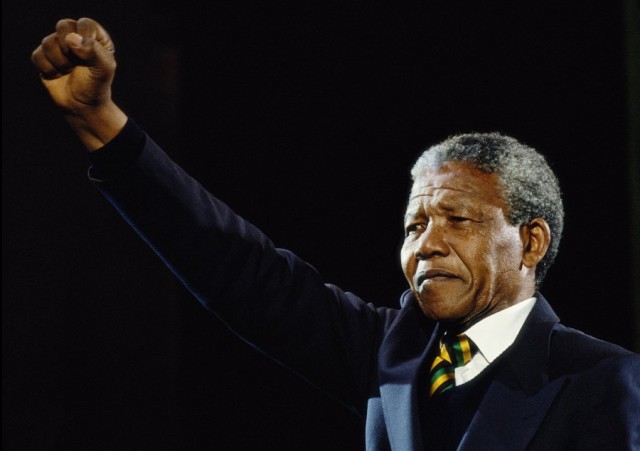
Nelson Mandela has died. Here’s the lead on the story from the Associated Press:
JOHANNESBURG — Nelson Mandela, who became one of the world’s most beloved statesmen and a colossus of the 20th century when he emerged from 27 years in prison to negotiate an end to white minority rule in South Africa, has died. He was 95.
South African President Jacob Zuma made the announcement at a news conference late Thursday, saying “we’ve lost our greatest son.”
From my own perspective — that of a white American who has struggled to understand our own nation’s racial divides in all their depth and complexity — Mandela’s most incredible accomplishment was that the transition he led — from a brutally repressive regime based on white supremacy to a democratically ruled, black-majority state — has been not only peaceful, but marked by grace and a determination to unify.
Not to strain too far for the local angle, but the Bay Area did provide a footnote to Mandela’s career. During a U.S. tour that followed his release in 1990, Mandela appeared at a packed and wildly celebratory Oakland Coliseum.
In the speech, given June 30, 1990, he thanked the Bay Area for its support. “It is clear, beyond any reasonable results, that the un-banning of our organization came as a result of the pressures exerted upon the apartheid regime by yourselves,” he told the crowd to raucous applause, as can be seen in archival footage from the speech. At the time, Berkeley, Oakland and San Francisco all had ordinances calling for divestment of funds placed with U.S. companies who had been doing business in South Africa. Local port workers refused to unload South African goods from ships. UC Berkeley was forced to divest $1.7 billion after protests on campus.
KQED’s Joshua Johnson recently talked with Pedro Noguera, professor of education at New York University. Noguera was student body president in the mid-1980s at UC Berkeley. He tells us how he became involved in the divestment movement:
“What was important about those protests, they were not simply the usual rites of spring that you get on college campuses like Berkeley. It continued, through the summer, into the fall, for the next two years. And resulted in the University of California, the Regents, voting to divest. When they did, that was the largest disinvestment by any American university, $4.6 billion dollars in corporations that were doing business in South Africa.”


